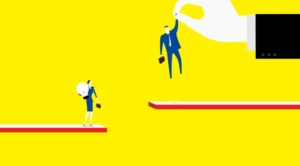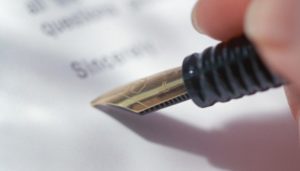Got a great colleague or student? Planning to write a fantastic letter or reference? Then read on to find out how to avoid falling into the common traps based on unconscious gender bias.
Stay away from stereotypes
Although they describe positive traits, adjectives like 'caring', 'compassionate', and 'helpful' are used more frequently in letters for women and can evoke gender stereotypes which can hurt a candidate.
Emphasise accomplishments, not effort
Letters for reference for men are more likely to emphasise accomplishments ("his research", "his skills", or "his career"), while letters for women are 50% more likely to include 'grindstone' adjectives that describe effort. "Hard-working" associates with effort, but not ability.
Keep it professional
Letters of reference for women are 7x more likely to mention personal life - something that is almost always irrelevant for the application. Make sure you use formal titles and surnames for both men and women.
Mention research and publications
Letters of reference for men are 4x more likely to mention publications and twice as likely to have multiple references to research. Make sure you put these critical accomplishments in every letter!
Don't stop now!
On average, letters for men are 16% longer than letters for women and letters for women are 2.5x as likely to make a minimal assurance ("she can do the job") rather than a ringing endorsement ("she is an excellent candidate for this job").
Be careful raising doubt
We all want to write honest letters, but negative or irrelevant comments, such as "challenging personality" or "I have confidence that she weill become better than average" are twice as common in letters for female applicants. Don't add doubt, unless it is strictly necessary!
We all share bias
Unconscious gender bias isn't a male problem. Research has shown that women are just as susceptable to these common pitfalls as men.
This is a problem for all of us... let's solve it together.
Adjectives to avoid:
Caring, compassionate, hard-working, connscientious, dependable, diligent, tactful, interpersonal, warm, helpful.
Adjectives to include:
Successful, excellent, accomplished, outstanding, skilled, knowledgable, insightful, resourceful, confident, ambitious, independent, intellectual.
Trix, F & Psenka, C. (2003). Exploring the color of glass: Letters of recommendation for female and male medical faculty. Discourse & Society, 14(2), 191-220.
Madera, JM, Hebl, MR, & Martin, RC. (2009). Gender and letters of recommendation for academia: Agentic and communal differences. Journal of Applied Psychology, 94(6), 1591-1599.
With thanks to: The University of Arizona Commission on the Status of Women.
Respond

